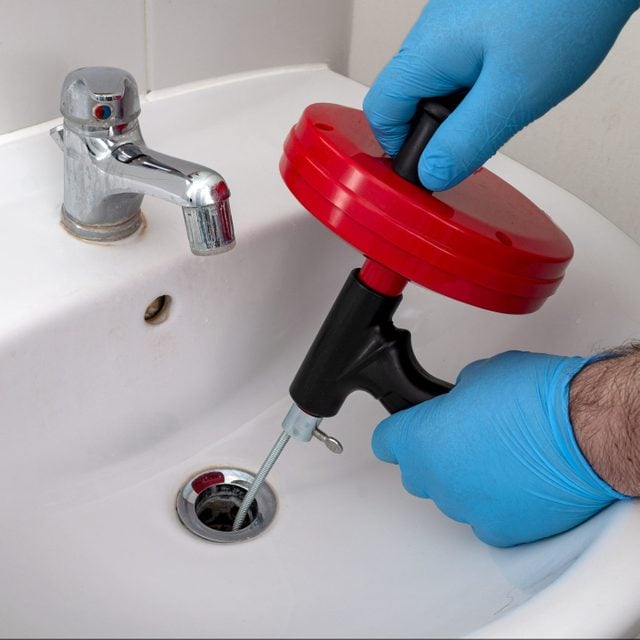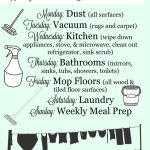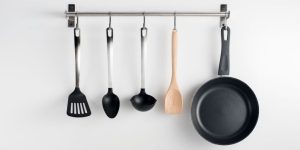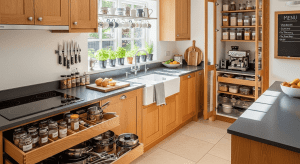Are your bathroom drains slow or clogged? You’re not alone.
Drain pipes can get blocked with hair, soap scum, and other debris over time. This can lead to unpleasant odors, slow water flow, or even backups that disrupt your daily routine. But don’t worry—cleaning your bathroom drain pipes doesn’t have to be complicated or expensive.
You’ll discover simple and effective ways to clear those stubborn blockages yourself. Keep reading to learn easy steps that will keep your drains flowing smoothly and your bathroom fresh. Your clean, hassle-free bathroom is just a few minutes away!

Credit: www.ars.com
Tools And Materials Needed
Common cleaning supplies include baking soda, vinegar, and hot water. These help break down grease and soap scum. A plungercan clear minor clogs by creating pressure.
Specialized drain cleaning tools make tough jobs easier. A drain snakeor augercan reach deep clogs. Drain brushesscrub pipe walls to remove buildup. Gloves protect hands from dirt and germs. Safety goggles keep eyes safe from splashes.
Safety Precautions
Always wear protective glovesto keep your hands safe. Use gogglesto protect your eyes from splashes. A face maskhelps avoid breathing in harmful fumes. Choose clothes that cover your skin well.
Handle cleaning chemicalscarefully. Read the label before use. Never mix different chemicals; this can cause dangerous reactions. Keep chemicals away from children and pets. Use them in a well-ventilated areato avoid inhaling fumes.
Preparing The Drain
Start by removing any visible debrisfrom the drain area. Hair, soap scum, and dirt often block the opening. Use gloves to pull out this debris carefully.
Next, clear the drain cover. Some covers can be unscrewed or lifted with a flat tool. Cleaning this cover helps water flow better and prevents future clogs.
- Wear gloves for hygiene.
- Use a small brush to scrub the cover.
- Check for stuck particles inside the cover holes.
- Rinse the cover with warm water after cleaning.
Basic Cleaning Methods
Pouring boiling waterdown the drain can help clear minor clogs. It melts grease and softens soap scum. Repeat this process a few times for better results. Be careful to avoid splashing hot water on your skin.
Mixing baking sodaand vinegarcreates a fizzy reaction that helps break down grime inside pipes. Pour half a cup of baking soda, followed by half a cup of vinegar. Cover the drain and wait 15 minutes. Then flush with hot water to clear debris.
- Use a plungerto push out clogs stuck in the drain.
- Place the plunger over the drain opening, creating a tight seal.
- Push and pull the plunger quickly several times.
- Lift the plunger to check if water drains better.
- Repeat if needed, but avoid using too much force to prevent pipe damage.
Advanced Cleaning Techniques
A drain snakeis a tool used to clear blockages deep in pipes. It looks like a long, flexible wire. Insert it into the drain and turn the handle to break up clogs. This helps remove hair, soap, and dirt that block water flow. Drain snakes reach places a plunger cannot.
Chemical drain cleanersuse strong chemicals to dissolve blockages. They work fast but must be handled carefully. Wear gloves and keep away from children. Do not mix different cleaners as it can cause harmful reactions. These cleaners can damage old pipes if used often.
Enzyme-based cleanersuse natural bacteria to eat away organic material in pipes. They are safer for pipes and the environment. These cleaners take longer but help prevent future clogs. Ideal for regular maintenance and gentle cleaning.
Preventing Future Clogs
Regularly flushing drains with hot water helps keep pipes clear and stops buildup. Avoid pouring grease or hair down drains to reduce blockages. Using a drain strainer catches debris and prevents clogs before they start.
Regular Maintenance Tips
Clean drainsevery week with hot water. This helps remove debris. Pour a mix of baking soda and vinegar. Wait 15 minutes, then rinse with hot water. Use a drain cover to catch hair and soap. This prevents buildup inside the pipes. Check pipes for leaks or damage regularly. Fix issues quickly to avoid clogs.
Avoiding Common Drain Blockers
Do not pour greasedown the drain. It hardens and clogs pipes. Throw coffee grounds in the trash, not the sink. Hair and soap scum are big problems. Use a strainer to catch them. Teach everyone these simple rules. Keep drains clear and flowing smoothly.
When To Call A Professional
Persistent clogs or slow drainage often signal the need for a professional plumber. Avoid DIY fixes when water backs up repeatedly or foul odors persist. Skilled help ensures safe and thorough cleaning without damaging pipes.
Signs Of Serious Blockages
Blockages can cause water to drain slowly. Bad smells might come from the drain. Gurgling sounds are another warning sign. Water may back up into the sink or tub. If you see these signs, a big blockage might exist. Clearing it yourself could be tough and messy.
Choosing The Right Plumber
Picking a plumber requires some thought. Look for someone with good reviews. Ask friends or family for recommendations. Check if the plumber is licensed and insured. A friendly plumber who explains things well is helpful. Make sure you know the cost before they start work. This avoids surprises later. `

Credit: www.ars.com

Credit: www.familyhandyman.com
Frequently Asked Questions
How Often Should I Clean Bathroom Drain Pipes?
Clean bathroom drain pipes every 3 to 6 months. Regular cleaning prevents clogs and bad odors. Frequent maintenance keeps water flowing smoothly.
What Is The Best Way To Unclog Bathroom Drains?
Use a mixture of baking soda and vinegar. Pour it down the drain, wait 15 minutes, then flush with hot water. This natural method clears minor clogs effectively.
Can Chemical Drain Cleaners Damage Pipes?
Yes, harsh chemical cleaners can corrode pipes over time. They may cause leaks or pipe damage. Use natural cleaning methods or mechanical tools instead.
How To Prevent Bathroom Drain Clogs?
Use a drain strainer to catch hair and debris. Avoid pouring grease or soap scum down the drain. Regularly flush drains with hot water.
Conclusion
Cleaning bathroom drain pipes keeps water flowing smoothly. Regular care prevents clogs and bad smells. Use simple tools and safe cleaners for best results. Small efforts save big plumbing problems later. Remember to check pipes often and act fast if water drains slowly.
Clean drains help your bathroom stay fresh and hygienic. A little time spent now avoids costly repairs. Keep your drains clear, and enjoy a trouble-free bathroom every day.

I’m Abby Lu, a passionate home cook who loves simplifying everyday meals. At PlugChef.com, I share product reviews and cooking guides to help you find the best tools for your kitchen.











